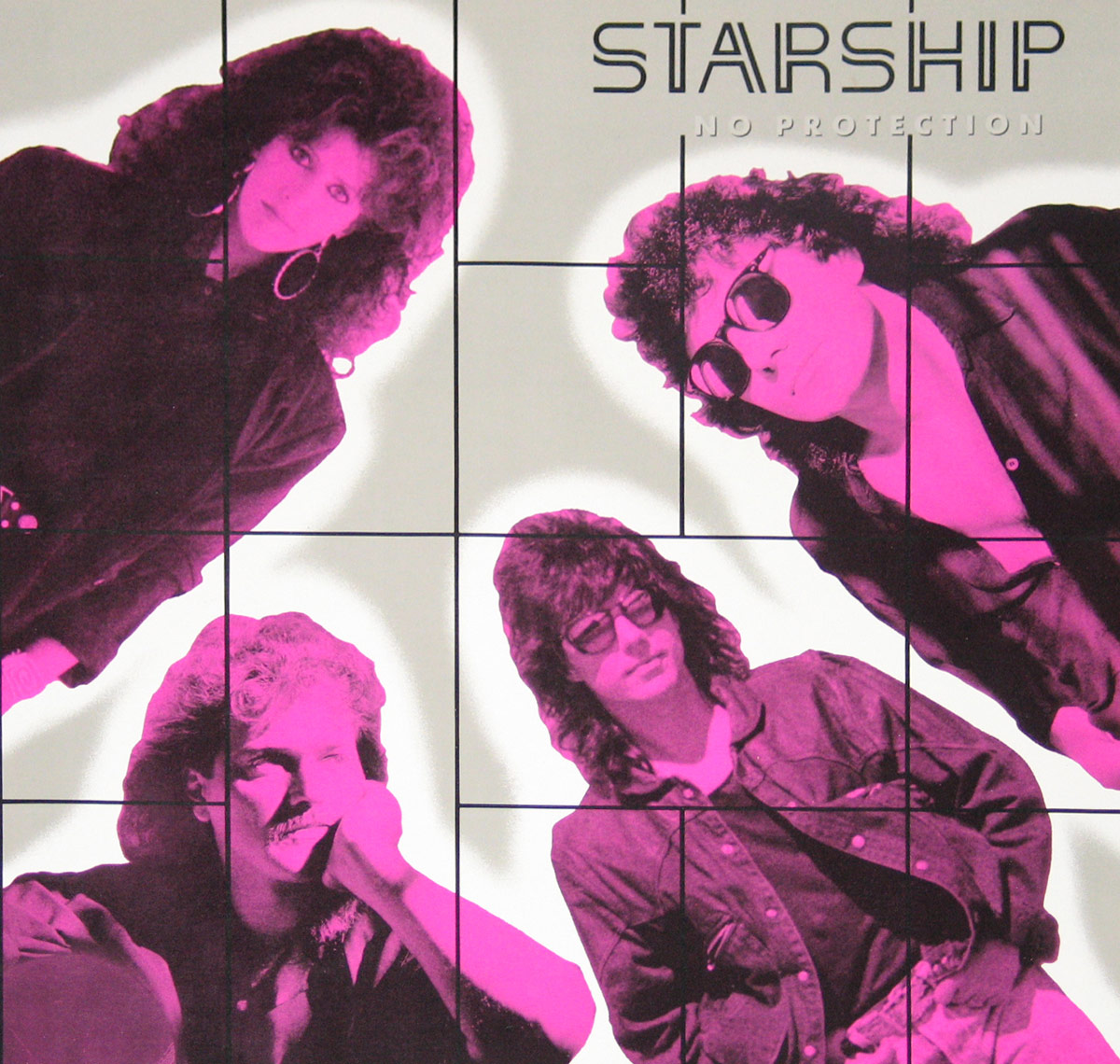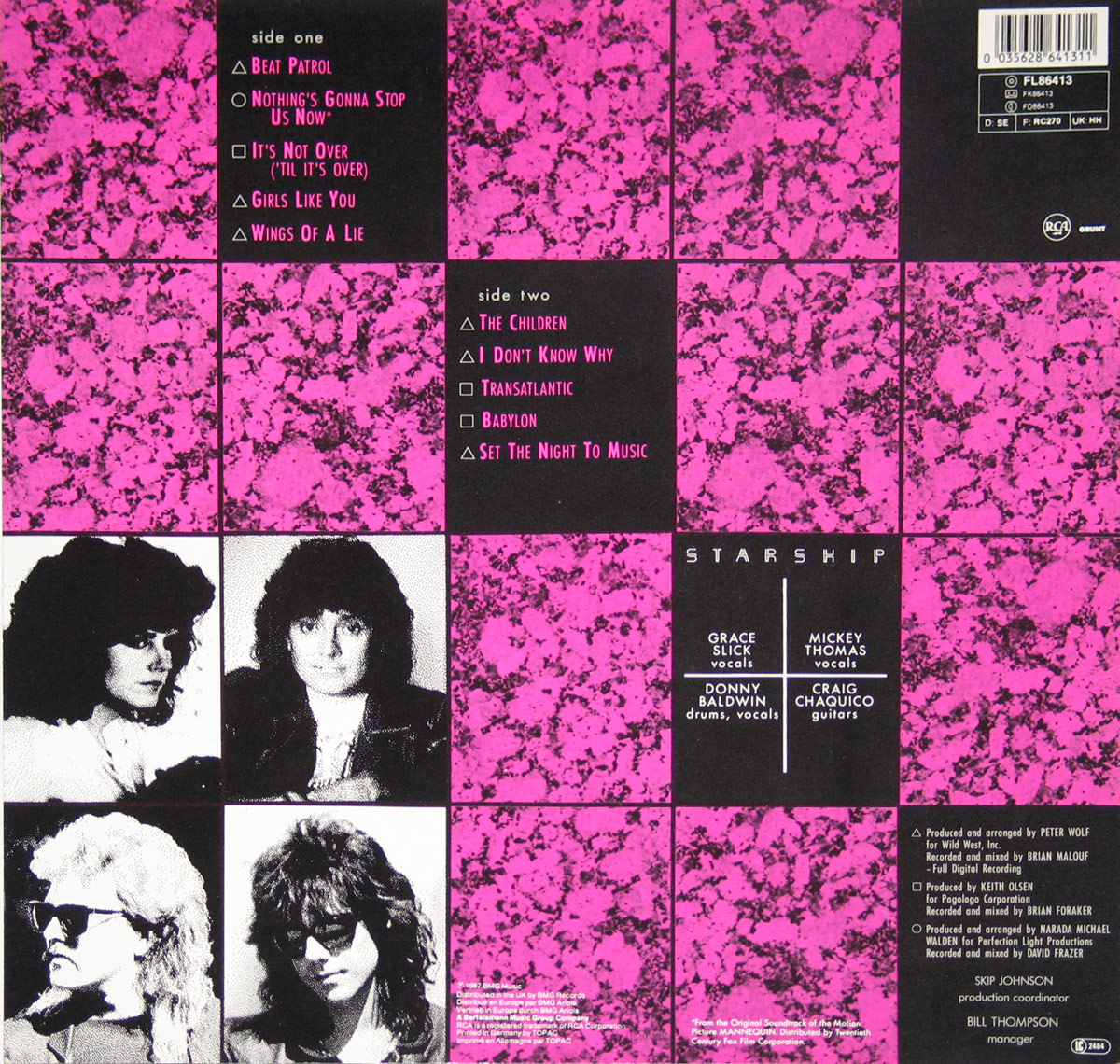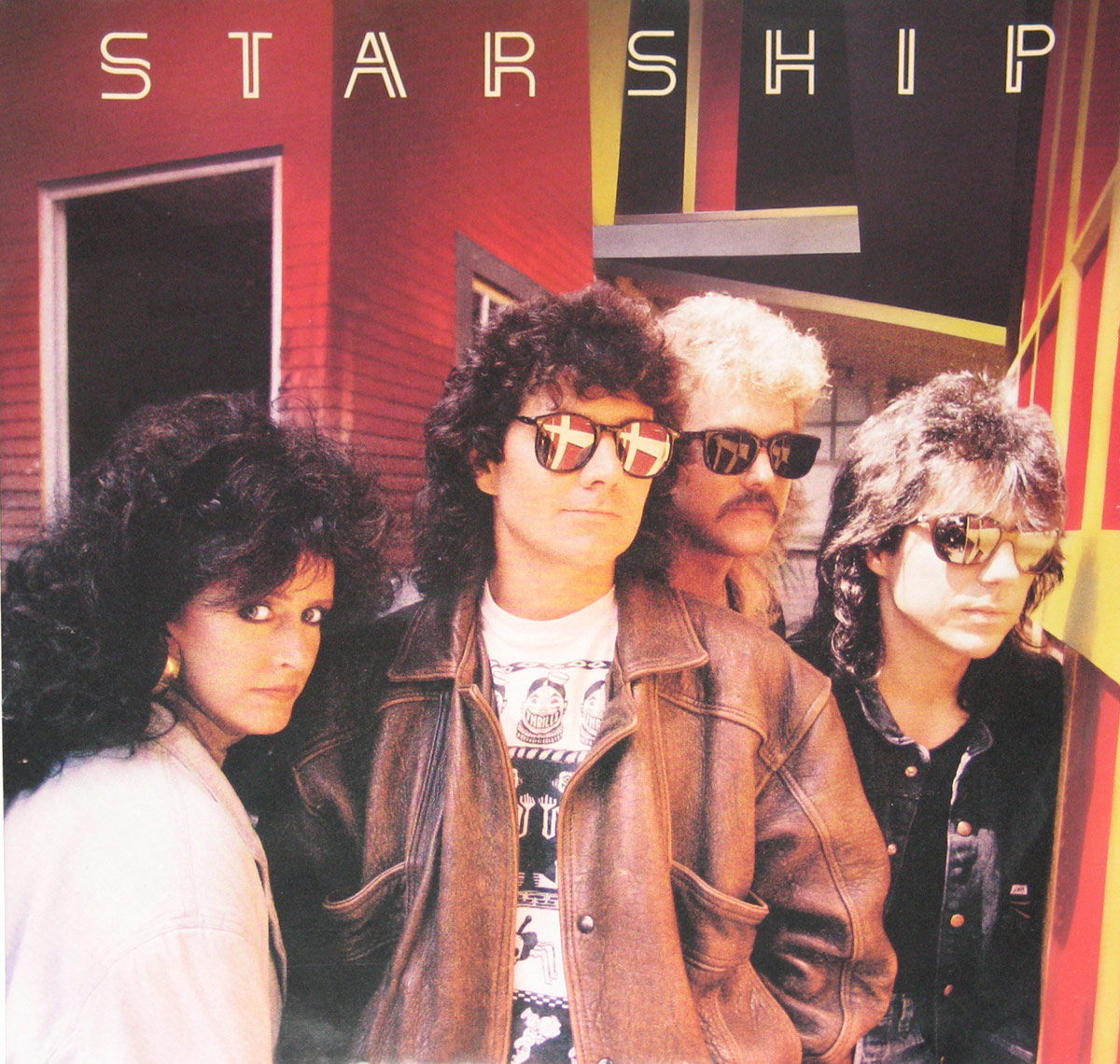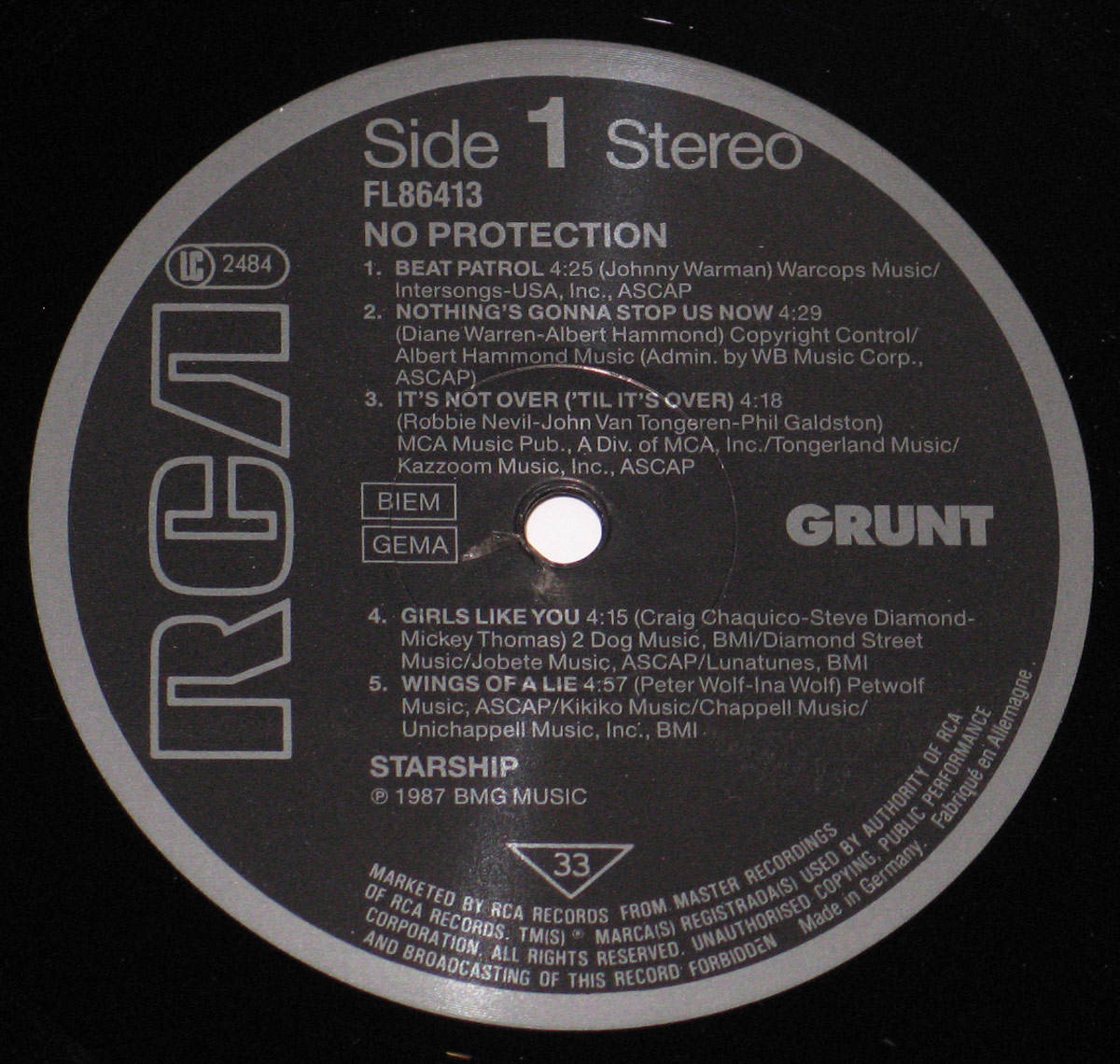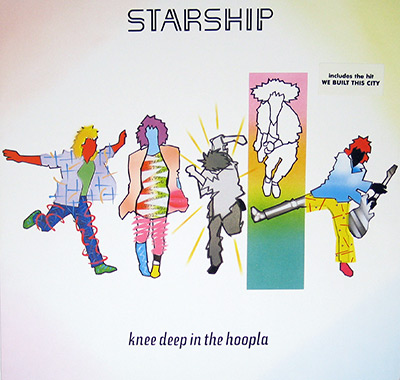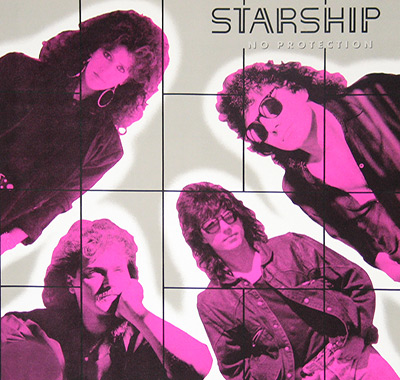Grace Slick, the rare front woman who could sound both regal and dangerous in the same breath, walked into the Bay Area storm with The Great Society (1965–1966), then leveled the room with Jefferson Airplane (1966–1973) and came back for the reunion (1989). After the Airplane splintered, I watched her steer the heavier, road-tough years of Jefferson Starship (1974–1978, 1981–1985-ish), then ride the glossy hit-factory era as Starship (1985–1988) while still singing like she owned the sky. “White Rabbit” and “Somebody to Love” weren’t just songs to me—they were psychedelic hard proof that a voice can reroute culture. Grace Slick Wiki
Album Description:
Starship’s “No Protection”: A Bold Musical Departure
– Album Description
In the vibrant landscape of 1980s pop-rock, Starship’s 1987 album “No Protection” emerged as a testament to the band’s evolution and their willingness to embrace new sounds. A far cry from their Jefferson Airplane roots, the album marked a distinct departure from their psychedelic past, opting instead for a polished, radio-friendly sound that resonated with a new generation of music lovers.
Historical Context: A Band in Transition
“No Protection” arrived at a pivotal moment in Starship’s career. The band, formerly Jefferson Starship, had undergone significant lineup changes and a stylistic shift in the early 1980s. With the departure of founding members Paul Kantner and Marty Balin, the band’s sound evolved from the psychedelic rock of the 1960s to a more commercial, pop-oriented direction. This change, while commercially successful, alienated some longtime fans who yearned for the band’s earlier sound.
Musical Exploration: Embracing Pop Sensibilities
“No Protection” further solidified this new direction, showcasing a blend of pop, rock, and adult contemporary elements. The album’s lead single, “Nothing’s Gonna Stop Us Now,” became a massive hit, topping the charts and solidifying Starship’s place in the pop music landscape. Other notable tracks like “It’s Not Over (‘Til It’s Over)” and “Beat Patrol” further exemplified the band’s ability to craft catchy, memorable tunes with broad appeal.
Controversies: A Departure from the Past
The album’s pop-oriented sound drew criticism from some quarters, with some accusing the band of selling out and abandoning their rock-and-roll roots. However, others praised the band’s willingness to experiment and evolve, acknowledging the album’s undeniable catchiness and commercial success.
Production Team and Studio: Crafting a Polished Sound
“No Protection” was produced by Peter Wolf, whose meticulous attention to detail resulted in a polished, radio-ready sound. The album was recorded at several studios, including Fantasy Studios in Berkeley, California, and Soundcastle Recording Studio in Los Angeles, California.
Grace Slick: A Rock Icon’s Farewell
“No Protection” marked Grace Slick’s final studio album with Starship. The legendary vocalist, known for her powerful voice and rebellious spirit, had been a fixture in the band since its inception. Her departure after the album’s release signaled the end of an era for Starship, but her iconic status in the rock and roll pantheon remained unchallenged.
Anecdote: Grace Slick’s Timeless Look on "No Protection"
When "No Protection" hit the shelves in 1987, fans flipping the vinyl cover did a double take. There was Grace Slick, the same firebrand who once shrieked through "Somebody to Love" at Woodstock, now looking barely older than the fresh-faced pop stars of the MTV generation. One record store owner in San Francisco joked, “People asked if that was Grace’s daughter on the cover.”
What they didn’t know was that Grace was pushing 48—an age rarely seen on glossy pop album jackets at the time. While most artists from the psychedelic era had faded or gone gray, Slick was front and center, defying the industry's obsession with youth.
Behind the scenes, she didn’t exactly deny the illusion. "It’s all lighting and good lenses," she once quipped during an interview. But even as photographers airbrushed the past, Slick’s voice on tracks like "Nothing’s Gonna Stop Us Now" carried decades of rebellion with studio-slick confidence.
And just like that, she walked away—gracefully, and on her own terms.
